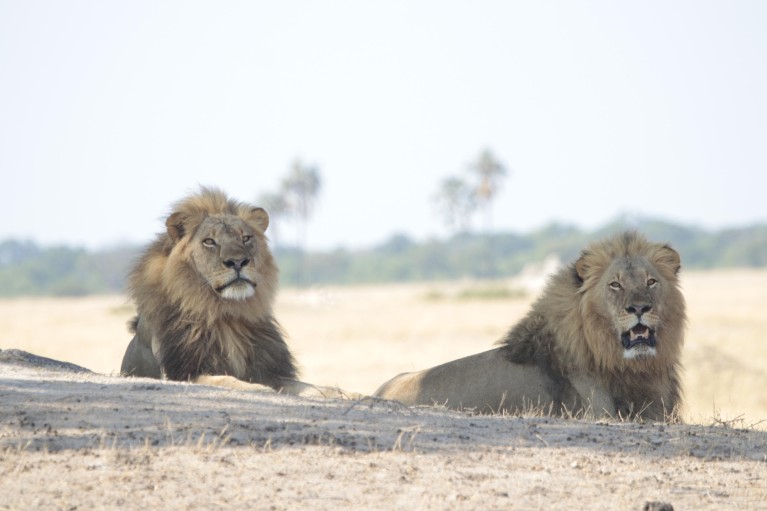
Young male lions in Zimbabwe's Hwange National Park. Credit: Andrew LoveridgeCredit : Andrew Loveridge
The age of lions that may legally be shot by trophy hunters should be raised to eight years from the six-year-old limit currently allowed in some Sub-Saharan African countries, a paper in Scientific Reports says.
The authors say this will help support conservation of Africa’s lions and ensure a sustainable professional hunting industry amid an increase in cases of poaching and the killing of so-called ‘problem animals’ by livestock farmers.
Lead author, Andrew Loveridge, of the Wildlife Conservation Research Unit at Oxford University, says there is practical value in proposing an increased age limit, and that it is much easier to accurately gauge the age of older animals by checking for physical cues, such as facial scarring, darker noses, bigger manes and slack jowls.
Previous research has shown that even experienced hunters tend to overestimate the age of lions that are between four and seven years old and could inadvertently be shooting animals at peak reproductive age. In the wild, male lions do not often survive beyond ten years.
The research team ran a series of simulations using 20 years of data from a lion study in Zimbabwe’s Hwange National Park, which show how easily controlled trophy hunting can become unsustainable and unprofitable if the number of hunts allowed are not carefully managed. This is especially true in areas in and around protected areas where bush-meat snaring is rife, and community members might be illegally shooting lions suspected of killing livestock.
“I hope our work will help behavioural ecologists and resource managers make more informed decisions about how to best protect lion populations, by considering the range of detrimental impacts that humans may have on them,” Loveridge says.
